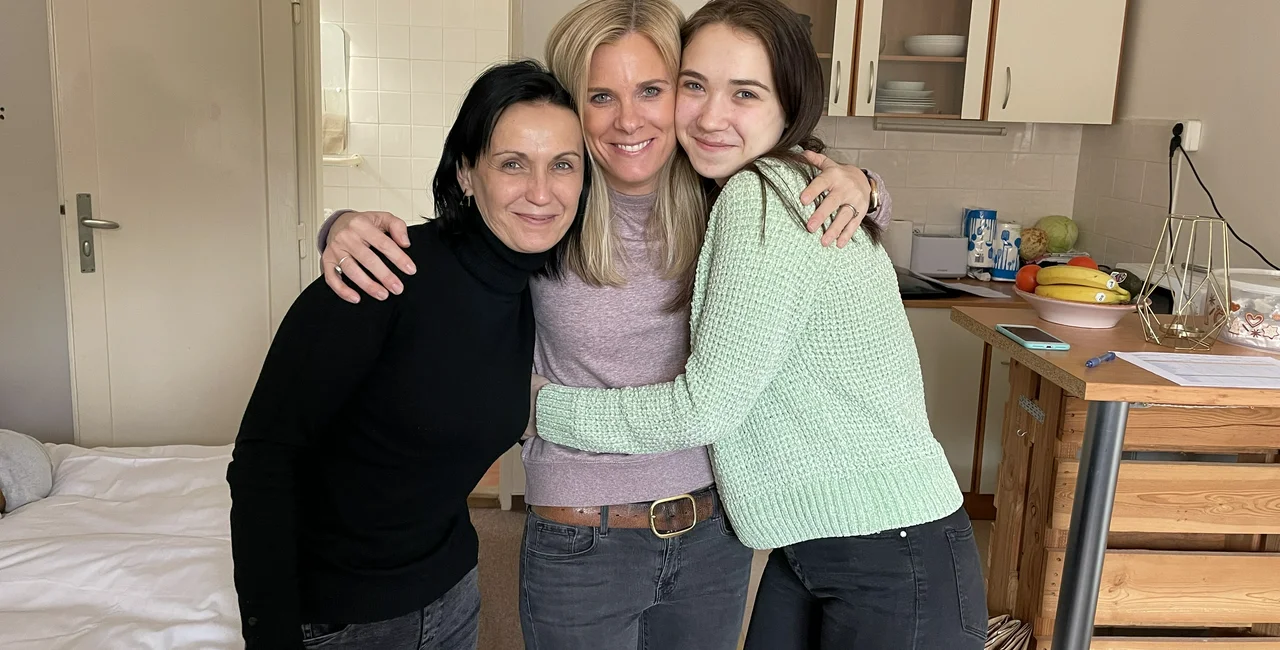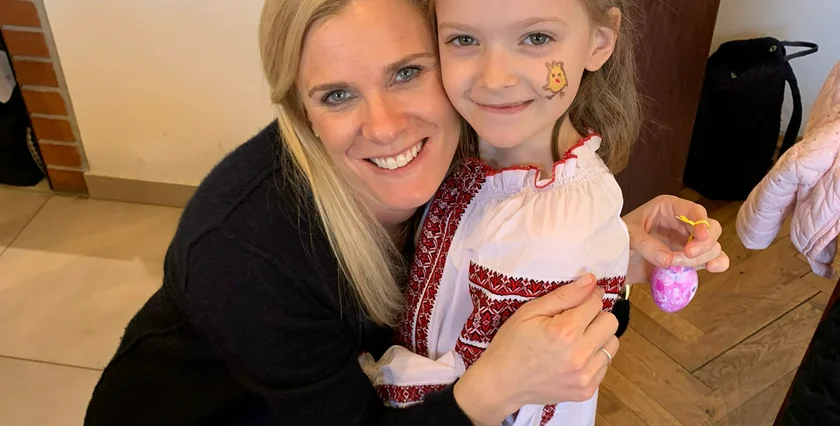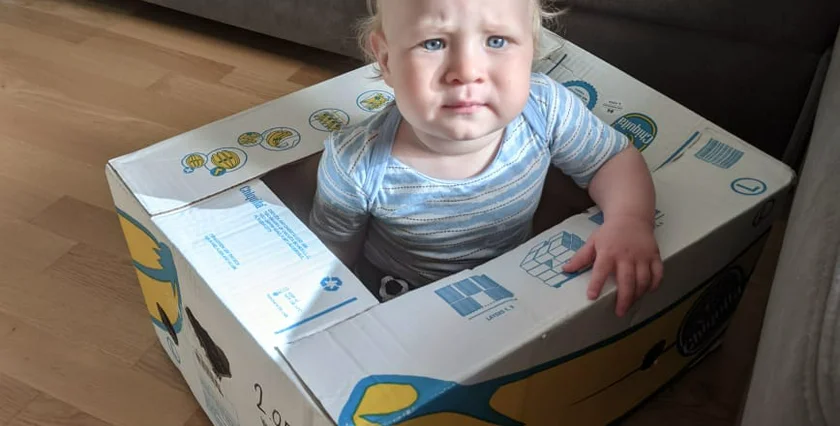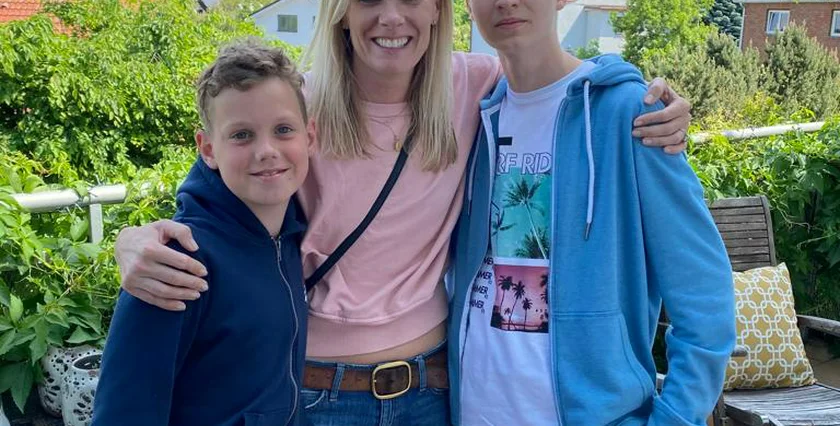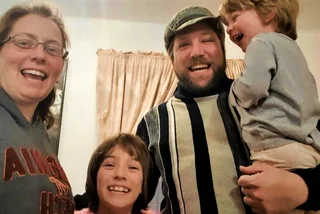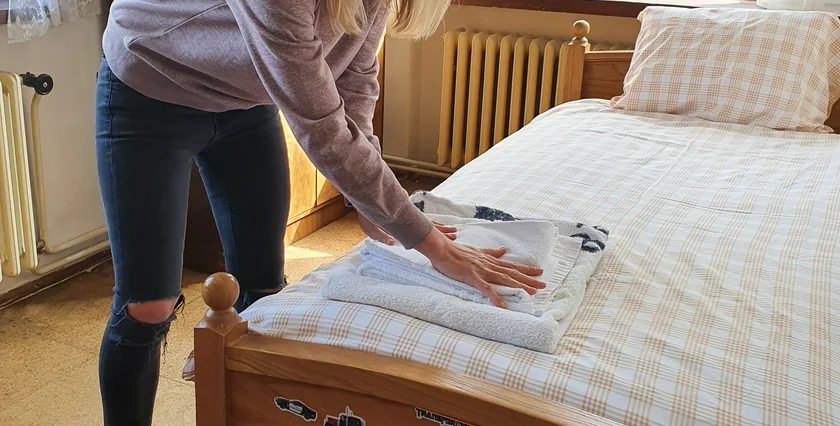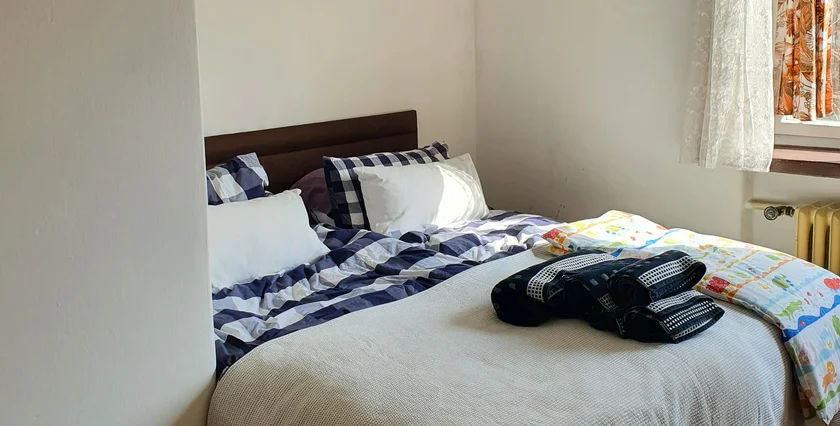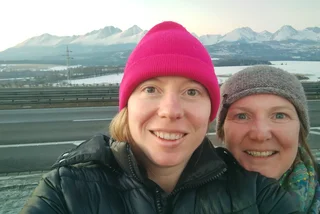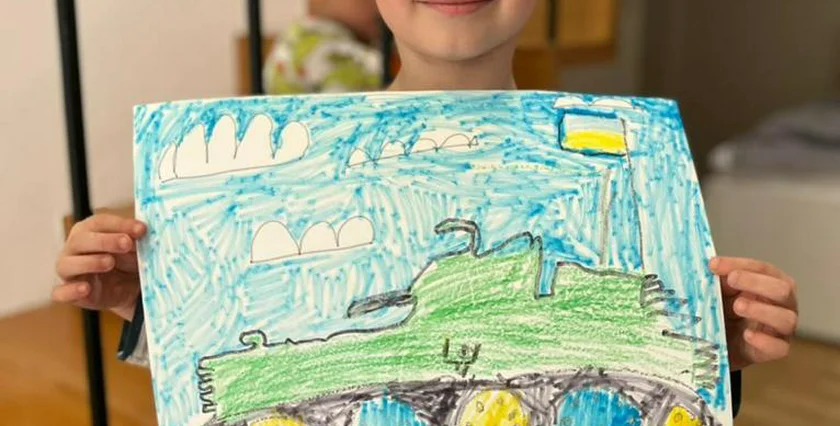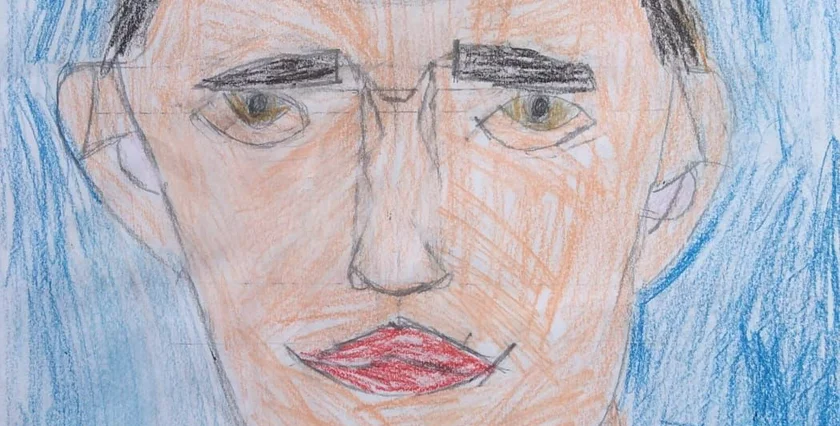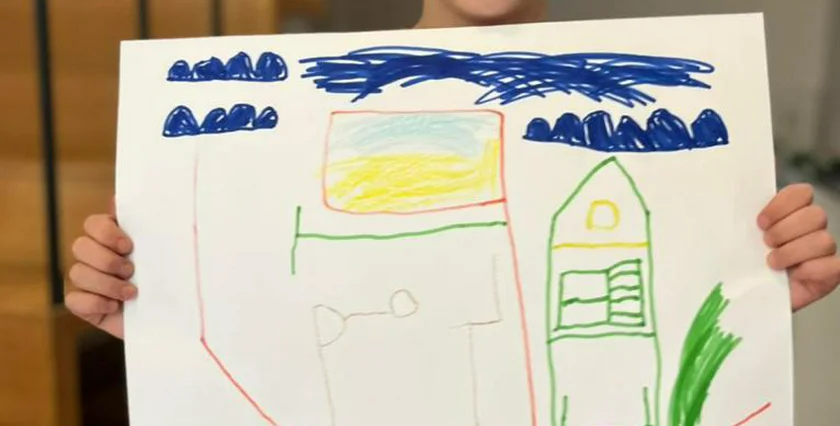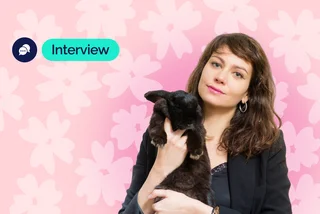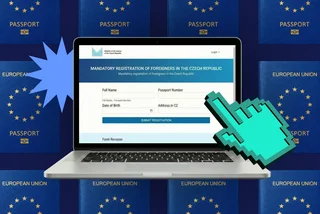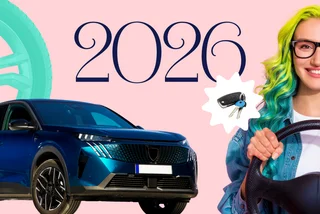We're launching a new interview series with expats who are making a difference in the lives of others or bringing about positive changes in their communities. If you know someone you think should be interviewed, scroll down to the bottom of the page to see how you can contact us.
Kimberly Bianchini-Scudellari moved from the U.S. to Prague in 2011, where she and her husband managed a real estate company until recently. This year, Kim has found a new calling – helping others.
After Russia’s invasion of Ukraine, she directed her expertise in business and real estate into providing comprehensive integration and care for those fleeing the war. When she founded the non-governmental organization Amity, Kimberly began a new chapter of her life.
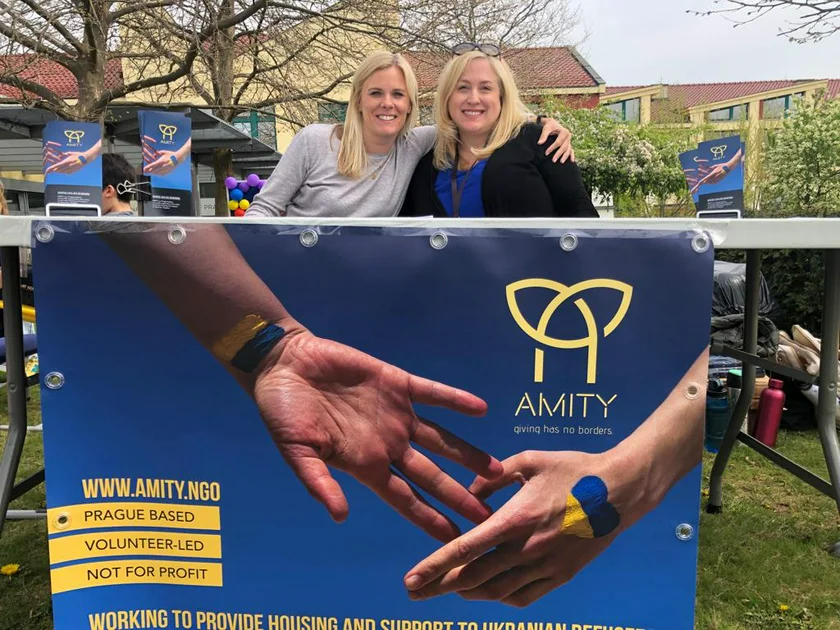
A mother of five, Kimberly understands the vulnerability of children and how important it is to provide them with stability and a safe space, particularly in a time of crisis, hundreds of kilometers away from their homes.
We spoke with Kimberly about her newly found passion, present achievements and future goals of the NGO, her life in Prague, and what it takes to be a change-maker.
The interview has been edited for length and clarity.
Tell us the whys and whens of your Prague story. When and why did you come, and from where did you relocate?
I moved to Prague from the U.S. 12 years ago. I came to the Czech Republic just for a long weekend, but then I met my husband. He is Italian and has been living in Prague for 20-plus years. At the time, I was a registered nurse in the United States and then I left the U.S. and moved here. I wanted to continue my nursing degree, but it was hard with all the different licenses because it is a very different process here. That’s when I started helping my husband who has a real estate company here. Although I didn’t have a background in real estate, I have learned a lot from him, so that’s how I ended up here and started doing real estate.
PARTNER ARTICLE
And has this experience been helpful in starting your new project?
A lot. One of the biggest differences in the way that I am now running my NGO is due to my business and real estate background. I manage it a little bit more like a business, although everything is non-profit and powered by volunteers.
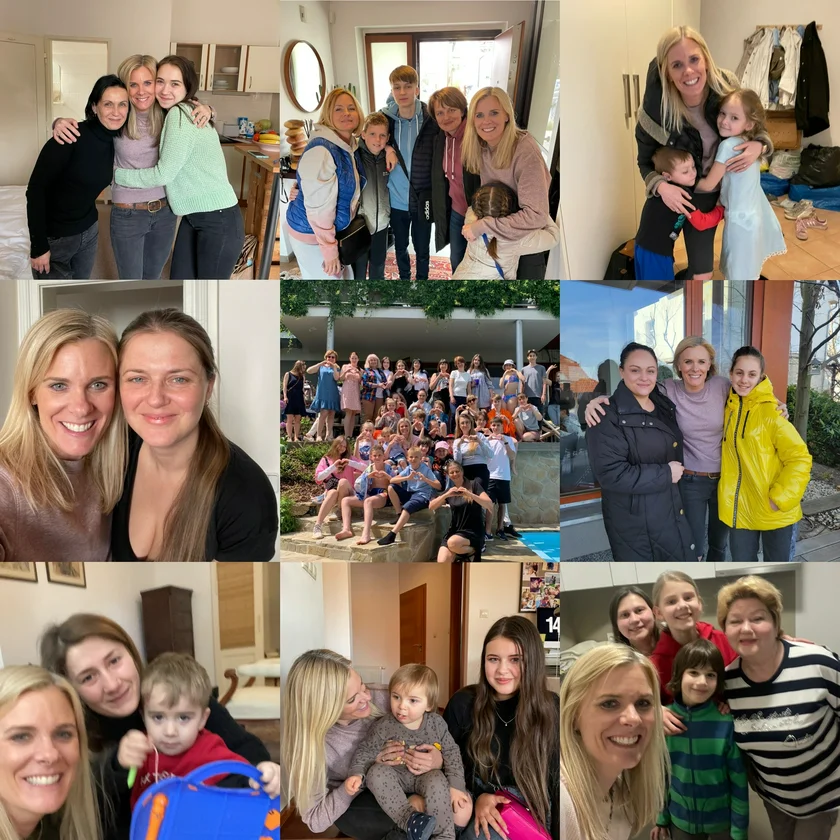
What exactly is your model?
The model that we have is that we want to care for each family and help them individually so they can become self-sufficient. What we do is that we take a family and figure out an apartment that would be compatible for them. Then we sign a lease as Amity. We pay their deposit and cover at least the first three months of rent for them through donations. During those three months, this kind of transitional period, we are working with the families. We have a team who builds their resumes with them in Czech and in English, we are helping some of the ladies and their children to take Czech classes, and in our network, we shoot out the resumes and help place the ladies into jobs.
So, it’s a full integration scheme?
It is. We have got an educational team. One of the ladies is Czech, she worked for the Czech Ministry of Education previously, and she and a few other volunteers who are Czech are taking these families to register for schools. So, we have ladies and jobs, kids and school. Also, we had a hard time finding pediatricians because most of the time doctors are quite full.
How many families do you help?
Currently, there are 23 families, 24 flats, and around 84 people.
And how would you evaluate the families’ integration so far?
It has been going really well. One piece of the feedback we received was from a woman who told us that she has been in touch with other Ukrainians in other places, and she said that here, they feel much more cared for and integrated compared to what they hear from their counterparts.
After the three months have passed and the ladies found jobs, we sit with them and reassess with them how much rent they can pay. But all the apartments that we are renting are within an affordable range – it would not make sense to rent something that families could not afford to pay for themselves.
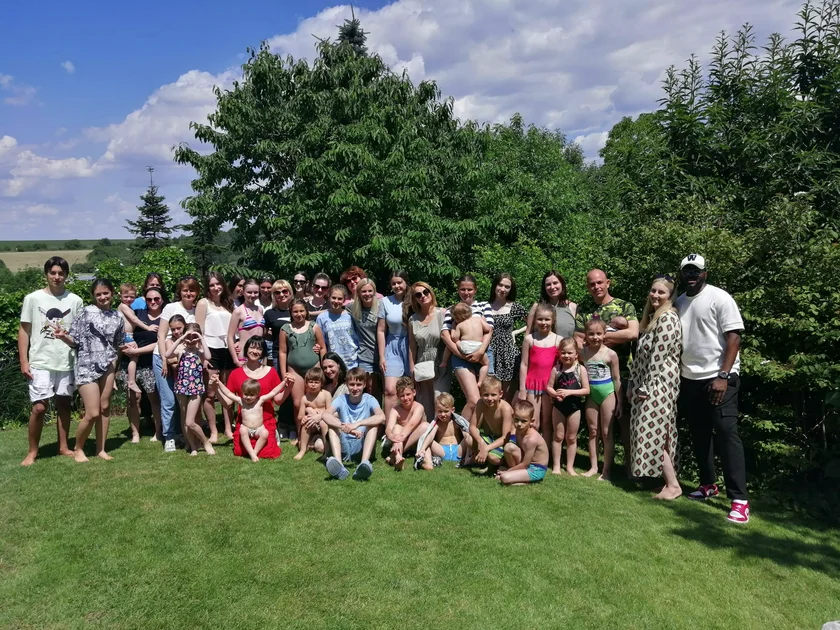
Was it your nursing experience that sparked that urge to help people?
Exactly. I actually went to the train station with another non-profit organization called Dignity. They have been helping refugees for a long time. I went as a volunteer because I thought that as trains were arriving, maybe someone would have medical needs and as a nurse, I could help. But I found that there weren’t any immense medical needs, but we saw that a lot of families really needed housing.
I reached out to my husband and asked if we have any empty flats of our own. We had two flats that we donated and quickly placed families there. Then I asked my husband again, are you sure we don’t have more? He told me that there was a project they were working on with two flats, but I asked him to put it on hold as they are many people in need of help. He agreed.
So, your husband has been supportive of you and the initiative you have established? What about your kids?
He was extremely supportive. My kids were excited in the beginning. I brought them along a few times to help me with sorting and donations. Then they went through a period when they were like, “Enough, can you come home now?” (laughs). But now, three months into it, they have gotten used to it.
As for myself, I realized that I need to form an NGO in order to take the concept to the next level. Then I started to reach out to our local contacts that we have in real estate because, as you might know in the Prague market, it is especially hard to find properties.
Would you say that Prague’s housing market is in crisis right now?
Well, there is definitely a shortage of apartments and increasing rent for sure.
Yet, you still managed to donate the apartments to the refugees, that’s quite admirable.
Thank you. So not all the apartments donated are ours. In addition to our four, there are six more apartments that people donated, making it 10 in total. There are 14 more apartments for which we pay rent, but we try to lock a good price, also for utilities. At the same time, the job market in Prague is okay, there are quite a lot of opportunities at the moment, especially in the labor market.
Now, when the families are more or less settled, what is your plan?
I have both a short-term plan for, say, the next three months as well as a long-term one, looking ahead to years.
The short-term plan: This summer, I will be taking a little holiday with my family, so I am pausing some of the apartment projects. After, we have a possible project of 47 small apartments.
That’s plenty!
Yeah, and this is where I need the community to get involved. My idea for the small apartments is to help the Czech families who have taken in Ukrainian families. Many were thinking that this was for a month, or two, or three, or four. They still want to help the families and don’t want to kick them out, but they need their own space. And the Ukrainian families need their space, too.
And what is your long-term plan?
Hopefully, this war will be over in a couple of years, and we will be able to use some of the resources to help relocate those families who want to go back. There is not a single family who does not want to go back. The trend that I am seeing is that those from areas like Mariupol, who do not have anything to go back to, are much keener to try and rebuild their lives here. The people who are more from the west or Kyiv are very anxious to return. Some have gone back already.
One thing that is important to mention is how supportive the Czech communities have been. I would like to give back to the Czech community in the long term and turn this structure that we have to help Czech women and children.
So, for instance, something like a center for survivors of domestic violence?
Yes, exactly. It could be for women struggling with domestic violence,it could be women who struggled with drug use, just any women that are less fortunate and are sort of in an interim place now. My idea would be if there is a family that’s been struggling for a long time, and they feel like they want to reintegrate into society, Amity could come alongside them and help.
It is very interesting how your mindset has shifted from business to the non-profit sector. Do you plan to return to running the business with your husband?
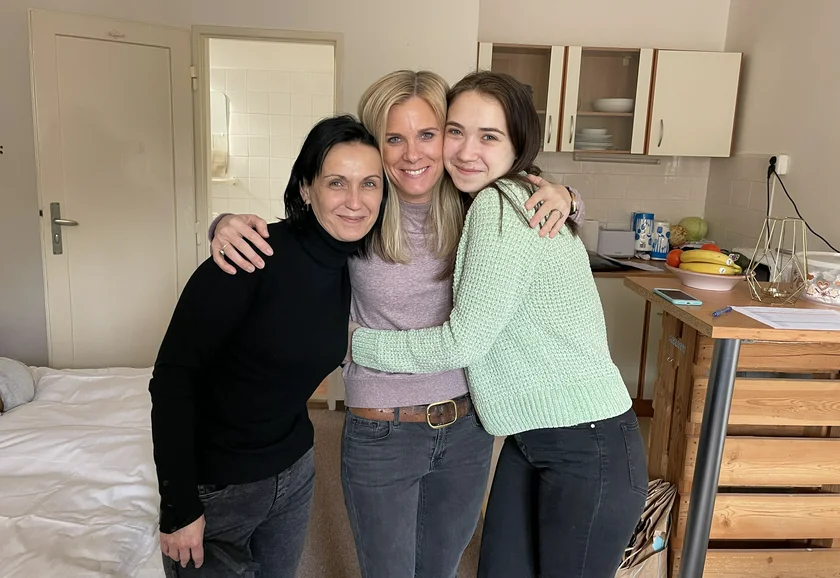
My husband has been working quite a lot in Italy recently, so we don’t have quite a lot of work here, the NGO came at the perfect moment. The satisfaction has been amazing for me in the past few months, so I will probably continue the non-profit route for as long as I can.
Have you felt a change within yourself once you started helping?
Absolutely. It is extremely rewarding. I have always tried to be generous and give to non-profits, but I never really understood how much you connect differently when you are the one helping the families, it becomes really personal.
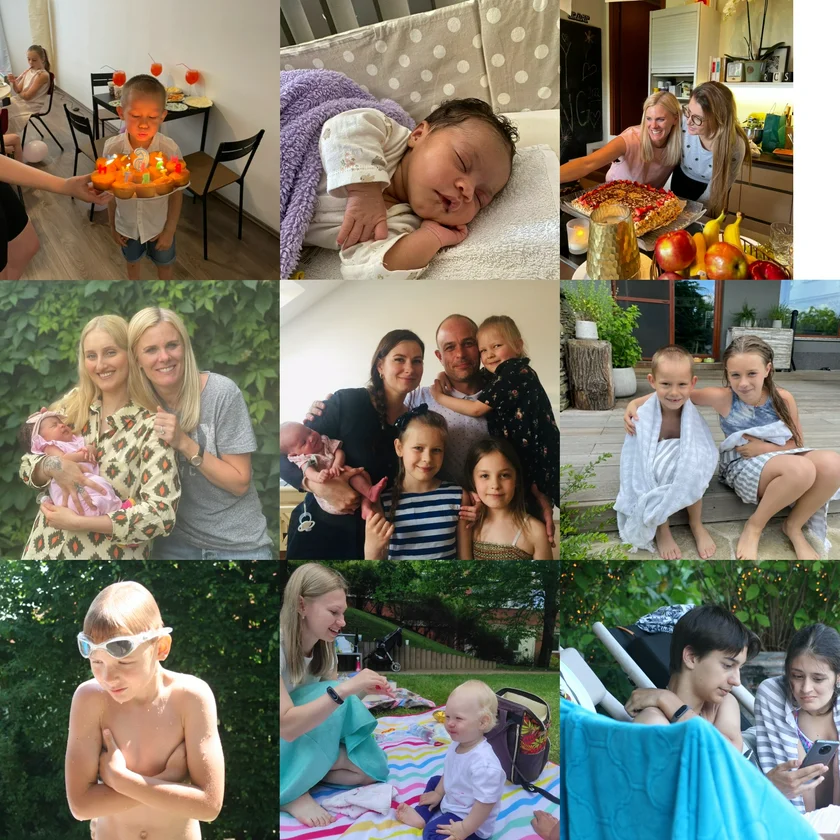
Do you think you will keep in touch with the families?
Absolutely, no questions asked.
Do you communicate with the families in English?
Most speak English, we have a couple of families that don’t. Actually, the two families that are closest to me don’t speak English. We communicate using Google translate and text back and forth.
How did the people in your community back in the States react?
I am from a town called Charlottesville, Virginia, and I went back a few weeks ago when my son graduated from university. When the community heard what I was doing, quite a few friends were happy to help Amity and donate. The media has also been quite helpful in getting our story out.
And what about people’s response here? Do you feel like the people are no longer as engaged?
People ask me that a lot. For us, I don’t feel like there is a decrease in support. I feel like the more my story is getting out, the more people are learning about Amity, the more support we get.
How many members do you have in your team?
Fourteen members. I now realize that if we want the organization to grow and flourish, we need to involve people with different backgrounds – education, HR. Although I have experience in real estate and business, as I owned a kids’ clothing store in the US, I have to rely on other people who are more knowledgeable in other areas.
You have such a diverse background.
I do, I am the jack of all trades (laughs). I sold that company once I moved to Prague.
How was the transition for you in terms of different cultures?
It was definitely a hard one. The Czech culture, and European culture in general, is certainly a different culture from the U.S. one. Whenever my Italian husband and I are in the U.S., he always asks me, “Why do the people in the grocery store ask me how I am? That’s weird, they don’t know me.” I tell him that’s an American thing, but for Europeans, you only ask that once you get to know a person. It was hard coming here; I always felt like I did something wrong. I asked for a bag at the supermarket, and I was always corrected. But now, I can laugh about it.
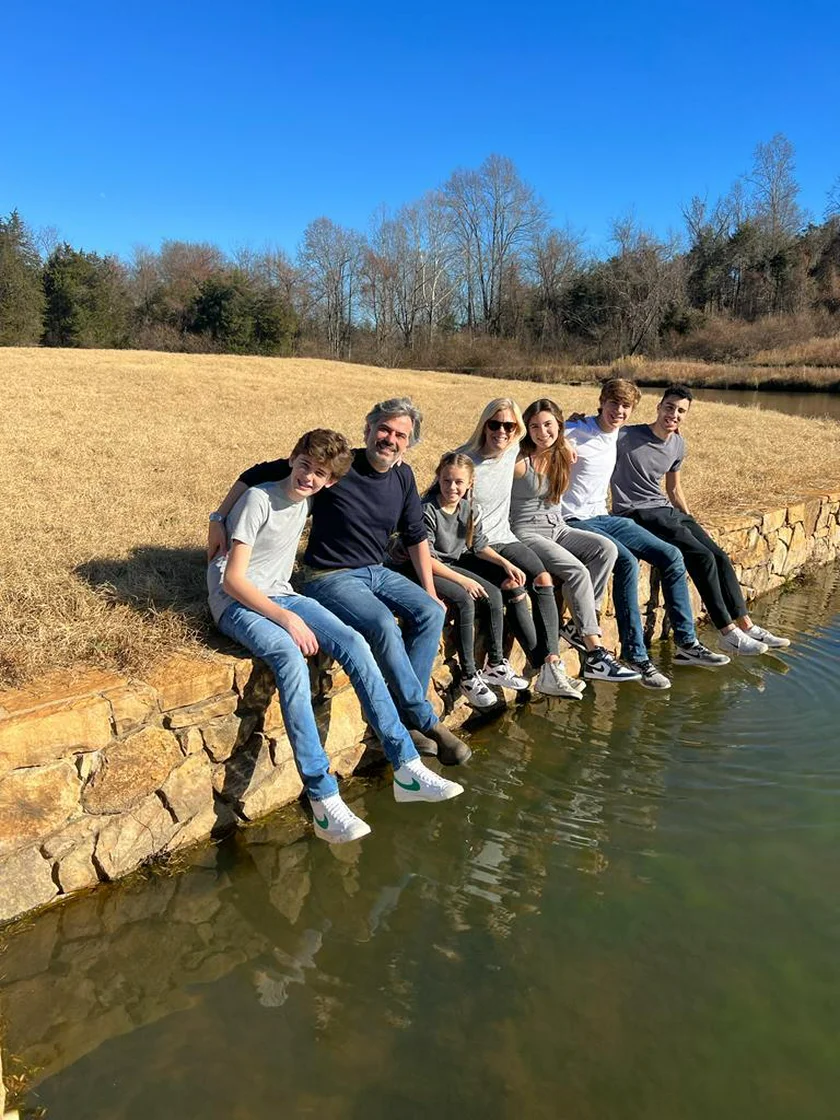
One thing I am relieved about is that my kids don’t have to grow up in the U.S., given the crisis of gun violence and school shootings there. Guns are so deeply entrenched in the society and culture in the States; even when I speak with my father, we do not find common ground – he believes that he should carry a gun, simply because everyone else does. I am really happy that my kids can live and go to schools in Europe.
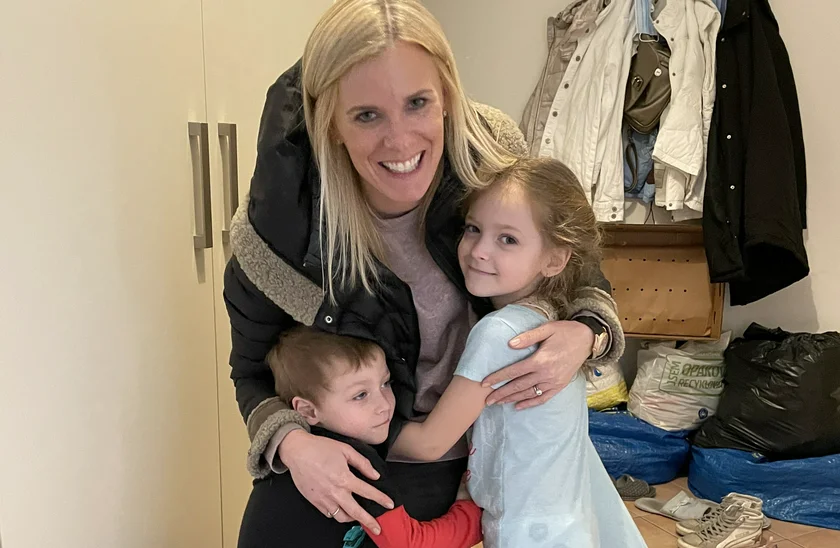
You seem to have this always positive, can-do attitude coupled with extremely contagious energy. Is this something you have learned or is this simply how you are wired? How would you summarize your life motto?
“Just do it.” I am kidding, but I do believe that being confident and determined goes a long way. I don’t believe in movements, I think it all comes from within a person. We need to teach people that the power lies within them and that they are capable of whatever they set their mind to.
Do you know an inspirational expat who's making a difference in the Czech Republic? Write to us at cs@expats.cz.












 Reading time: 10 minutes
Reading time: 10 minutes 